Trump, Greta and Rihanna: the year in quotes
‘You can shove your climate crisis up your arse’, Greta Thunberg chanted outside Cop26

It started with an insurrection, and ended with the threat of World War Three. In the middle, 2021 saw the return of the Taliban, an assassination in Haiti, floods in Germany, war in the Middle East, and, of course, the refusal of the Covid pandemic to subside.
Elsewhere, we saw the end of the Castros, a single ship wreak havoc on world trade, and a Ryanair plane forced down in Belarus. It is fair to say that many will have less than rosy memories of 2021. But it has not been all bad, just most of it...
January
The month was dominated by events in the US, and specifically what happened on 6 January when outgoing president Donald Trump rallied supporters in Washington over his erroneous claims that the election was “stolen”.
After his speech to supporters, a mob attacked the Capitol building, shaking the US political establishment to its core. In the ensuing trouble, five people died, more than 130 police officers were injured, and more than 700 people were subsequently charged. The events of the day are still under investigation.
“We’re going to walk down to the Capitol, and we’re going to cheer on our brave senators, and congressmen and women. We’re probably not going to be cheering so much for some of them, because you’ll never take back our country with weakness. You have to show strength, and you have to be strong,” Mr Trump to supporters gathered in Washington on 6 January before the attack.
“This is how election results are disputed in a banana republic,” former US President George W Bush the day after the insurrection.
“We have learned again that democracy is precious. Democracy is fragile. And at this hour, my friends, democracy has prevailed,” Joe Biden during his presidential inauguration on 20 January.
“I said it in a jovial way,” Capitol rioter Dawn Bancroft after pleading guilty to unlawful protesting at the Capitol and saying she was trying to find Democrat Nancy Pelosi “to shoot her in the friggin’ brain”.
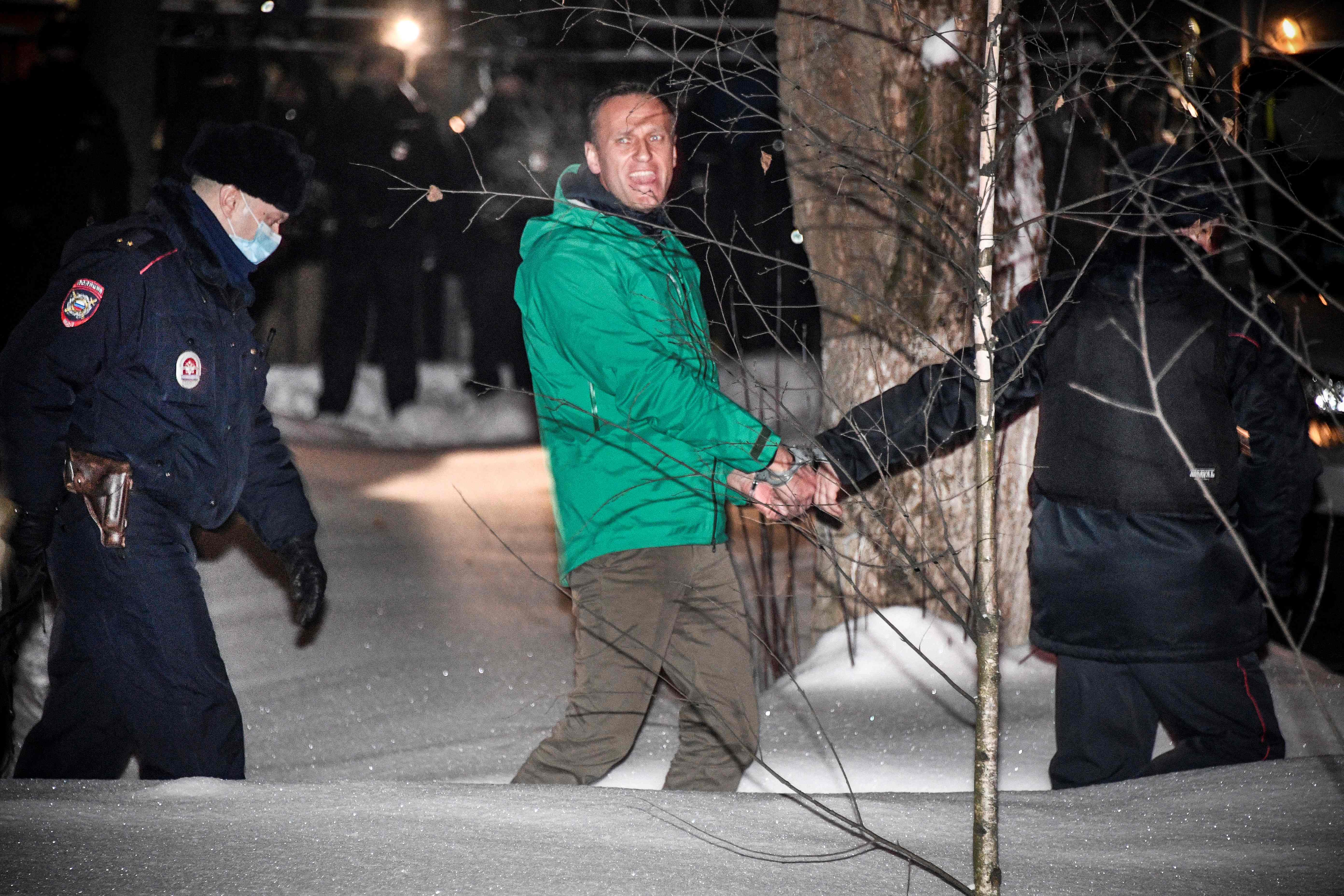
Elsewhere, Russian dissident Alexei Navalny returned home after surviving a poisoning attempt, suspectedly carried out by the FSB spy agency. His reward was to be immediately arrested. Later in the year he was sentenced to almost three years in jail.
“This is the best day in the last five months. I’m home,” Mr Navalny on returning to Moscow.
February
On 1 February, the world awoke to hear that Myanmar’s military had carried out a coup. Blaming voter fraud in a general election held the previous November for their decision to seize power, the military said they were taking power for a year. The move was condemned worldwide, but 10 months on, the generals still hold power.
“I urge people not to accept this, to respond and wholeheartedly to protest against the coup by the military,” Aung San Suu Kyi on the morning of the coup. She was sentenced to four years in December for “incitement and breaching coronavirus rules”.
Also in February, Mr Biden set about reversing policies introduced by his predecessor. The most notable of these was signing the US back up to the Paris Climate Agreement.
“We can no longer delay or do the bare minimum to address climate change. This is a global, existential crisis. And we’ll all suffer the consequences if we fail,” Mr Biden, sharply repudiating Mr Trump’s environmental legacy.
And far, far away from events on troubled Earth, Nasa successfully landed its Perseverance rover vehicle on Mars on 18 February after launching in July 2020.
“I’m safe on Mars. Perseverance will get you anywhere,” Nasa’s Perseverance Mars Rover sends the first tweet from Mars.
March
Israel held another general election - its fourth in two years - and North Korea severed ties with Malaysia, but the world was fixated on one thing only - the Suez Canal. The vital waterway was blocked after one of the largest sea containers in the world, the Ever Given, ran aground. Within days it had caused a tailback of almost 370 ships.
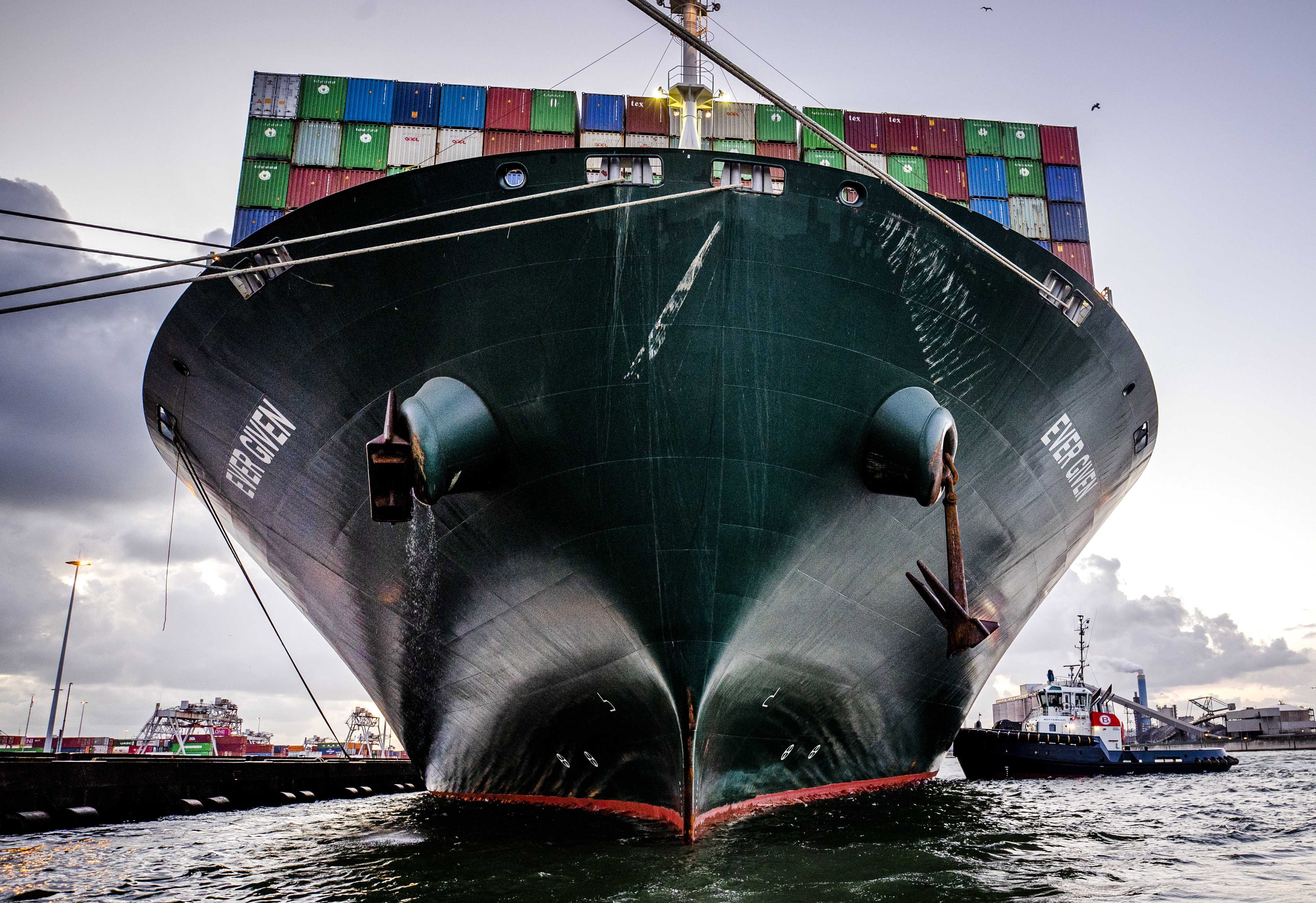
“Ship in front of us ran aground while going through the canal and is now stuck sideways, looks like we might be here for a little bit,” an understated Instagram message from a crew member in a nearby vessel.
“The vessel will remain here until investigations are complete and compensation is paid,” head of the Suez Canal Authority, Osama Rabie. Egypt had demanded $1 billion (£842m) in damages.
One person was on the move though; the Pope travelled to Iraq for a groundbreaking trip.
“I’m happy to travel again,” Pope Francis as he arrived in Iraq.
April
It was a landmark month for the world. For the first time since 1959, a Castro did not lead Cuba after Raoul Castro resigned as the First Secretary of the Communist Party. Elsewhere, the first rumblings of a crisis which has worsened all year were heard, as Russia warns Nato against sending troops to Ukraine.
“And as long as I live I will be ready with my foot in the stirrups to defend the fatherland, the revolution and socialism,” ageing revolutionary Raoul Castro stands down on 16 April.
Another longtime leader losing power, but in a far more final way, was Chad’s Idriss Deby, who had ruled since 1990. He was killed on the frontline, fighting rebels, and died of gunshot wounds.
“(Deby) has just breathed his last defending the sovereign nation on the battlefield,” army spokesman General Azem Bermandoa Agouna on state television.
May

The month was dominated by the latest outbreak of fighting between Israel and Hamas. Following weeks of tensions centered on the Sheikh Jarrah neighbourhood and Al Aqsa mosque, outright conflict erupted on 10 May. Eleven days of war would see more than 250 people killed in Gaza and 12 civilians in Israel.
“We are targeting a terrorist organisation that is targeting our civilians and hiding behind them, using them as human shields,” Israeli president Benjamin Netanyahu defends criticism of Israel’s actions.
Sigal, a resident of the southern Israeli city of Ashkelon, recalls another night of Hamas bombardment: “We have never experienced such an intense number of rockets ever than this week. We want this to end and everyone on both sides of the border, women and children on both sides, to be safe.”
“(Israel has) been denying the Palestinians their rights, the way they’ve been bombing the area, one could quite easily characterise it as an apartheid-type of state. I have no other reference point to describe what the Israelis are doing against the Palestinians,” South Africa president Cyril Ramaphosa.
Perhaps the most audacious story of the year also occurred during May when Belarus forced a Ryanair plane flying over its territory, but bound for Lithuania, to land in Minsk. Onboard was dissident Roman Protasevich and his girlfriend Sofia Sapega, who fiercely opposed Belarus ruler Alexander Lukashenko. The pair were jailed, then subsequently placed under house arrest.
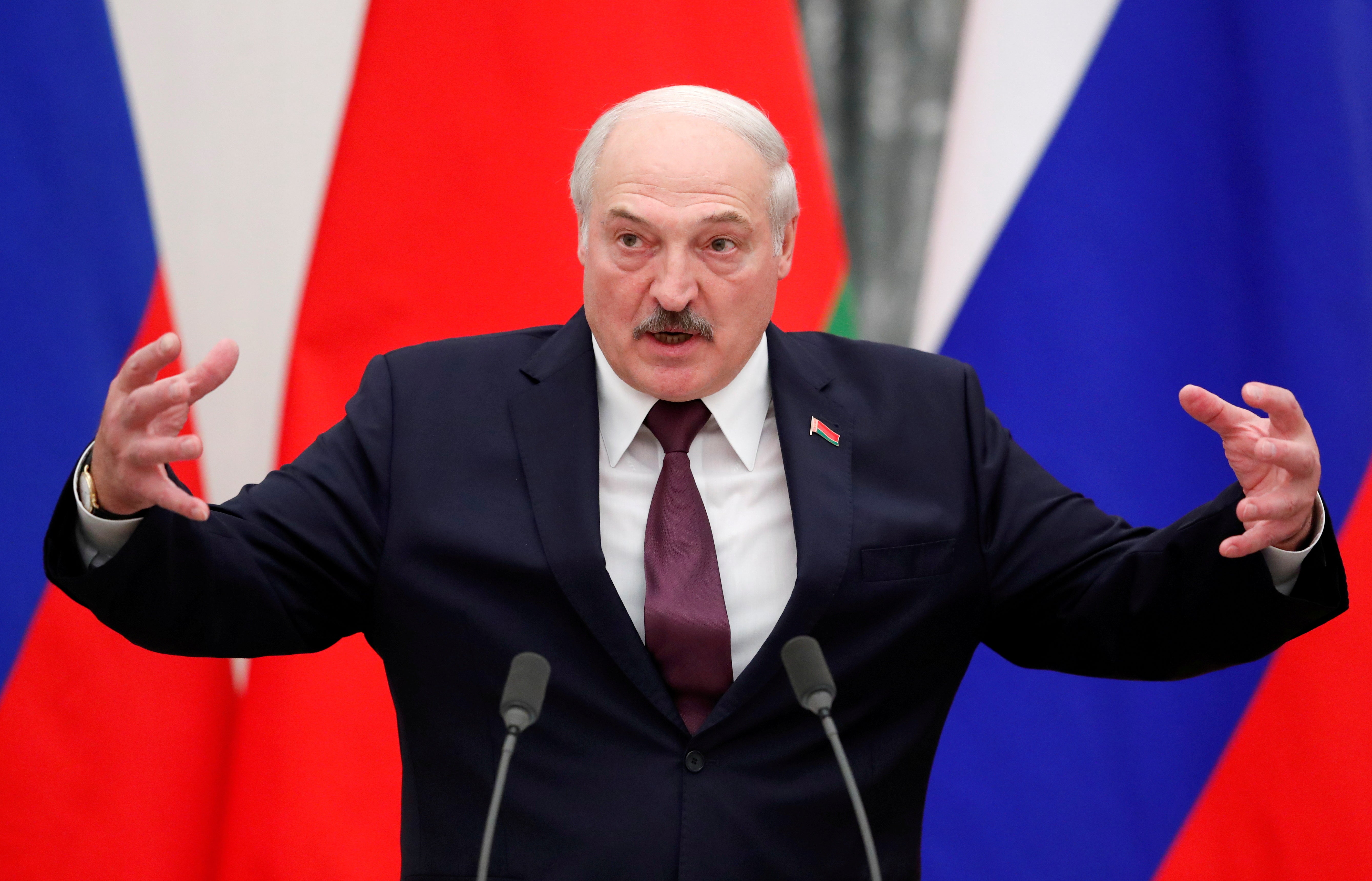
“Don’t do this! They will kill me! I am a refugee,” Roman Protasevich pleads with Ryanair crew not to land the plane in Belarus.
Fellow plane passenger Edvinas Disma recounted the flight: “He (Mr Protasevich) was not screaming, but it was clear that he was very much afraid. It looked like if the window had been open, he would have jumped out of it.”
“We need to show these bastards what for,” Alexander Lukashenko responds to the threat of European Union sanctions following the Ryanair incident.
June
For 12 years, he was one of the most recognisable world leaders. Mr Netanyahu had uncompromisingly ruled Israel since 2009, but in June 2021 his leadership came to an end - at least for now - when he was narrowly voted out of office following March’s election and subsequent polls. He was not going quietly.
“(A) dangerous coalition of fraud and surrender,” Mr Netanyahu’s none too flattering assessment of Israel’s new coalition government as he left power. “If it’s our destiny to be in the opposition, we’ll do so with our heads high until we take down this bad government, and return to lead the country our way.”
“This is not a day of mourning. There is a change of government in a democracy. That’s it,” Israel’s new prime minister, Naftali Bennett.
“It is an occupation and a colonial entity, which we should resist by force to get our rights back,” Hamas welcomes the new PM.
July
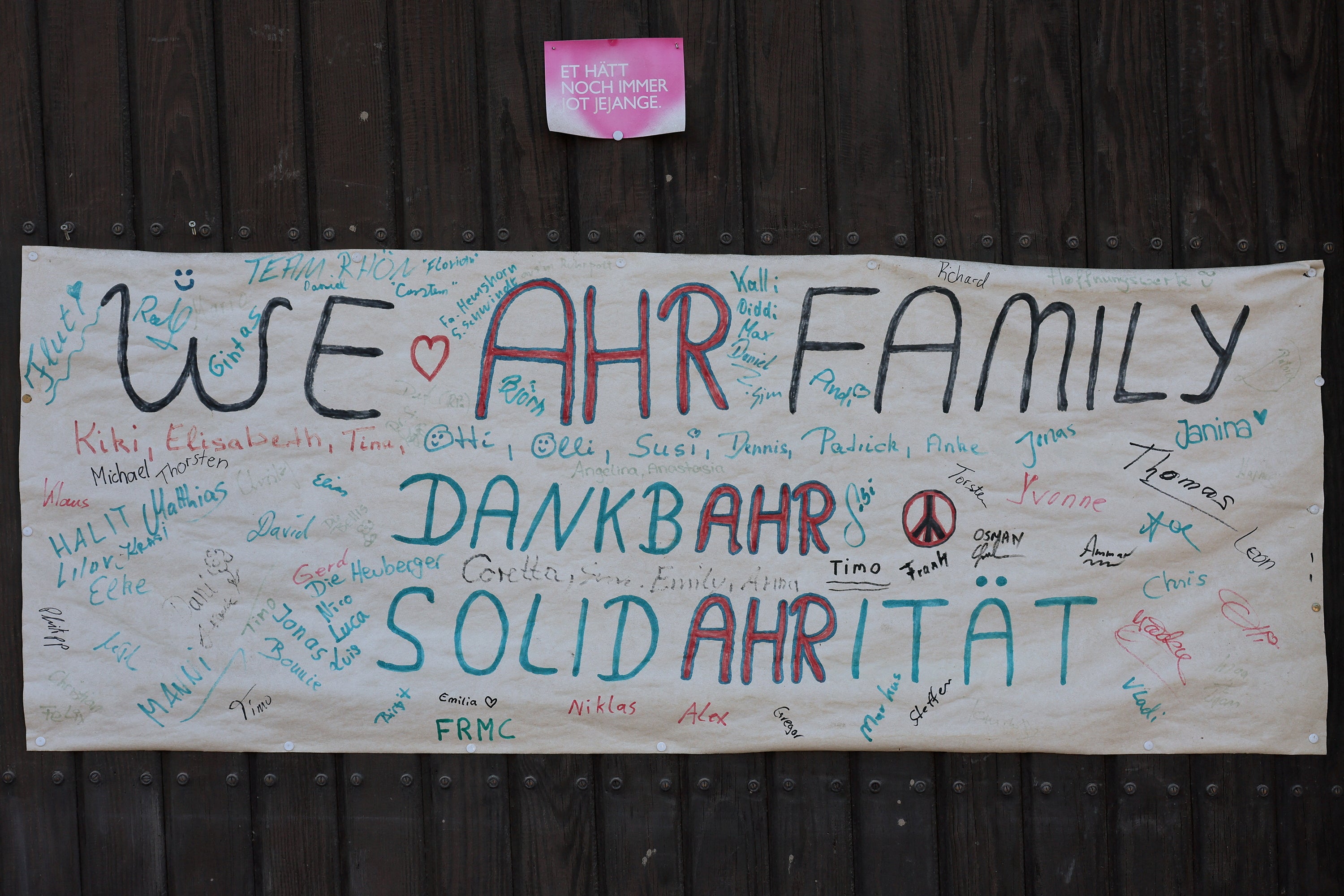
Climate change was the focus after wildfires destroyed parts of British Columbia, Canada. On the frontline was the small town of Lytton.
“I ran towards the town and the fire was pretty much following me. And in about 15 minutes, the whole town was gone,” Pierre Quevillon, resident of Lytton.
Meanwhile, in Europe the problem was flooding, despite it being summertime. More than 200 people were killed in Germany and Belgium by floods.
“In some areas, we have not seen this much rainfall in 100 years,” German weather service spokesperson Andreas Friedric.
On 7 July, Haiti’s President Jovenel Moïse was assassinated as he slept.
“We found him lying on his back, blue pants, a white shirt stained with blood, his mouth open, his left eye gouged out,” Judge Carl Henry Destin gives a no-holds barred press conference about the deadly events.
August
August is supposed to be a quiet news month. This year it most definitely wasn’t as the Taliban seized power again in Afghanistan, leaving many to fret about the future for the country while there were furious recriminations for western powers after the hurried withdrawal of US forces and their allies.

“The Taliban have won with the judgement of their swords and guns, and are now responsible for the honour, property and self-preservation of their countrymen,” deposed Afghan president, Ashraf Ghani, who was forced to deny fleeing Kabul with millions of the country’s money.
Kabul resident Sharif Safi remembers the moment when everything fell apart: “The whole city was silent. Everyone was panicking. It was around noon that we heard rumours that they [the Taliban] entered Kabul city.”
September
In possibly the most modern story of 2021, El Salvador decided to become the first country to adopt bitcoin as its legal tender.
“Like all innovations, El Salvador’s Bitcoin process has a learning curve. Not everything will be achieved in a day, or in a month.” Salvadoran President Nayib Bukele.
Also, in September, and much to France’s surprise, Australia, the UK and US signed a security pact, the awkwardly named Aukus. There were plenty of recriminations.
“Nothing was done by sneaking behind anyone’s back,” British defence secretary Ben Wallace, defending the decision.
“Prenez un grip about this and donnez-moi un break,” Boris Johnson tells the French. They don’t ‘donne lui un break’.
“This brutal, unilateral and unpredictable decision reminds me a lot of what Mr Trump used to do. I am angry and bitter. This isn’t done between allies. It’s really a stab in the back,” France’s foreign minister, Jean-Yves Le Drian.
October
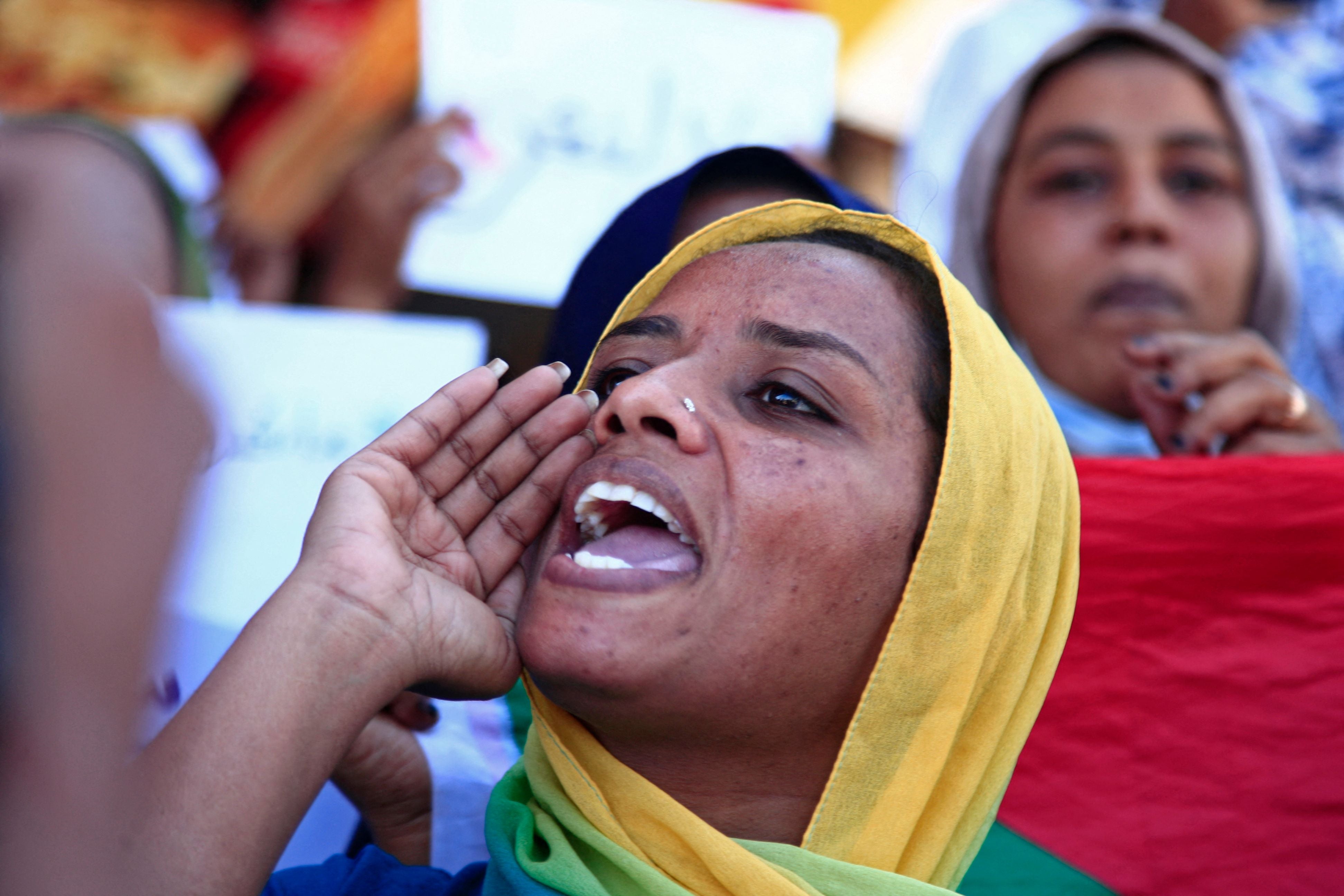
October was the month for changes of leadership. Japan, the Czechs and Austria all saw changes at the top and in Sudan a coup was launched as elections approached.
“What’s required now is stability. To resolve the impasse I want to step aside to prevent chaos,” Chancellor Sebastian Kurz as he quits over a corruption scandal.
“We will hand it over to the new coalition and we will be in opposition,” Populist Czech Republic PM Andrej Babis concedes defeat but his optimism was misplaced about handing power straight over. A drawn-out process involving an ecxamination of the country’s constitution and Covid, means only now as the coalition been able to form a new administration.
“Forces of darkness,” Sudan’s Prime Minister Abdalla Hamdok on the coup by generals
November
The UN Climate Change conference, held in Scotland, came to an end with a predictably fudged agreement. The normally unemotional Alok Sharma was reduced to tears and an apology at the outcome.
“I am deeply sorry,” Mr Sharma said. “I understand the deep disappointment but it is also vital that we protect this package.”
“You can shove your climate crisis up your arse,” campaigner Greta Thunberg chanted during a protest outside Cop26.
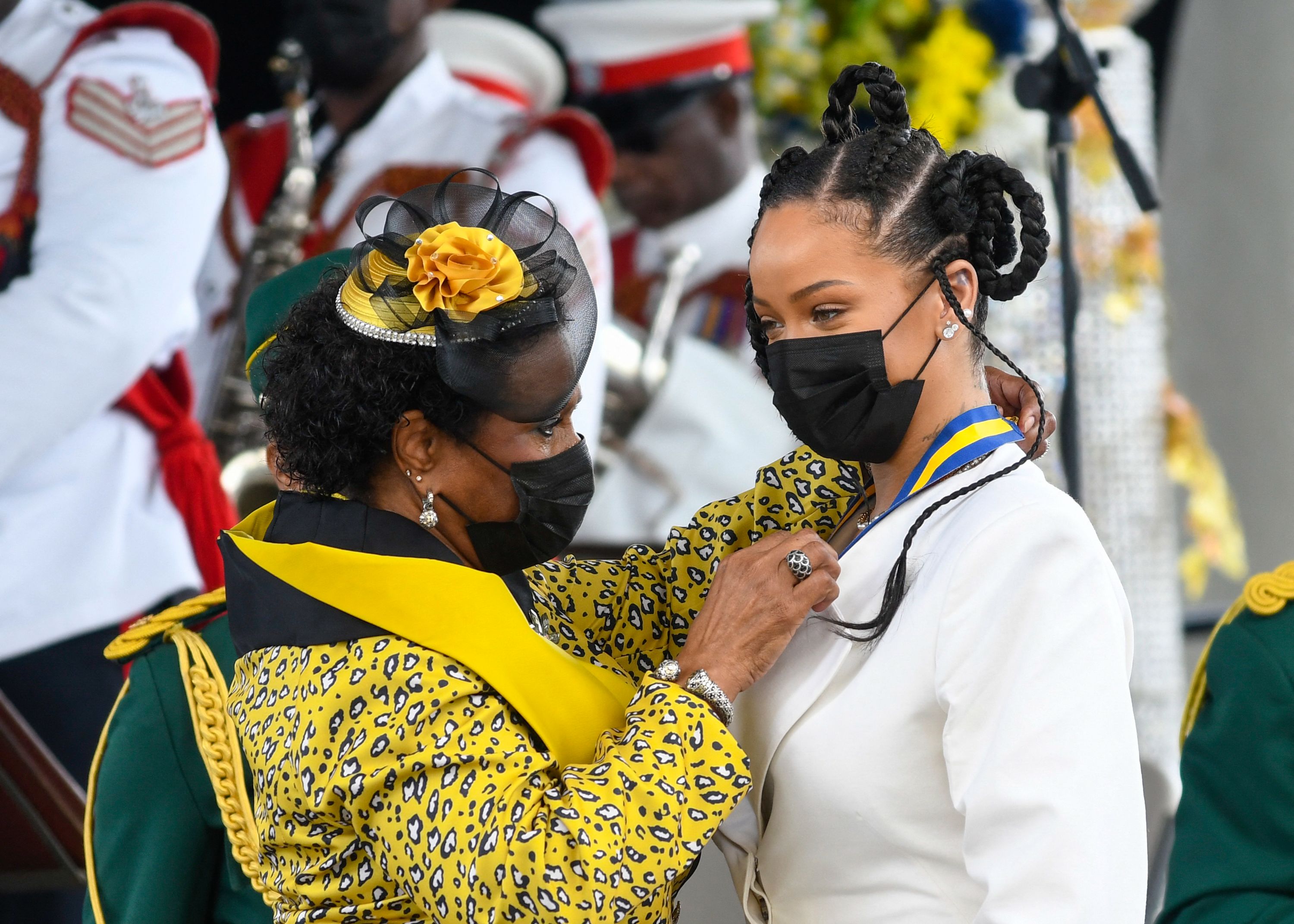
Barbados officially removes the Queen as head of state, and marks the landmark reform with a star-studded ceremony involving Prince Charles and Rihanna.
“May you continue to shine like a diamond and bring honour to your nation,” Prime Minister Mia Mottley tells the singer.
“Barbadians are a proud people. We are probably the proudest people I know. No matter where I go, in the world I take that pride with me,” Rihanna accepting the title of National Hero of Barbados.
December
War, plague and famine dominate with fears the situation in Ukraine is reaching a tipping point, the Omicron variant ripping through the world, and warnings over starvation in Afghanistan.
“An event cancelled is better than a life cancelled,” World Health Organization chief Tedros Adhanom Ghebreyesus.
“We didn’t come to the US or UK borders, no, they came to ours,” Russian president Vladimir Putin warns the west and Nato over any intentions for Ukraine.
Join our commenting forum
Join thought-provoking conversations, follow other Independent readers and see their replies
Comments
Bookmark popover
Removed from bookmarks